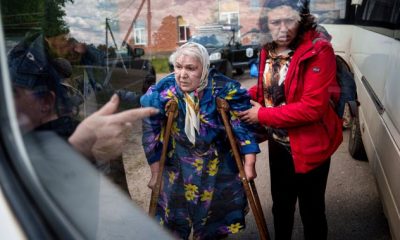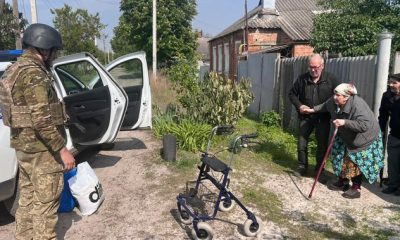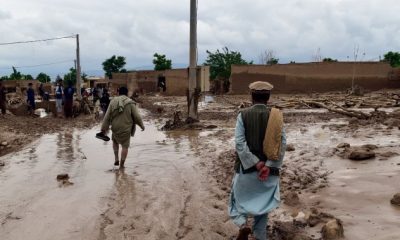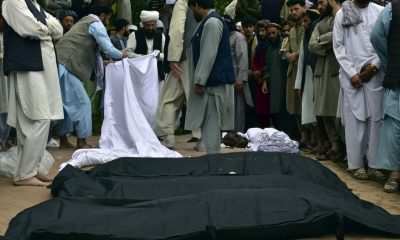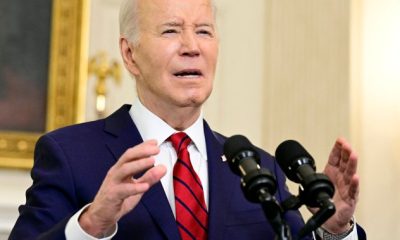General News
Younger folks ought to get in contact with younger migrants, says IOM’s Vitorino
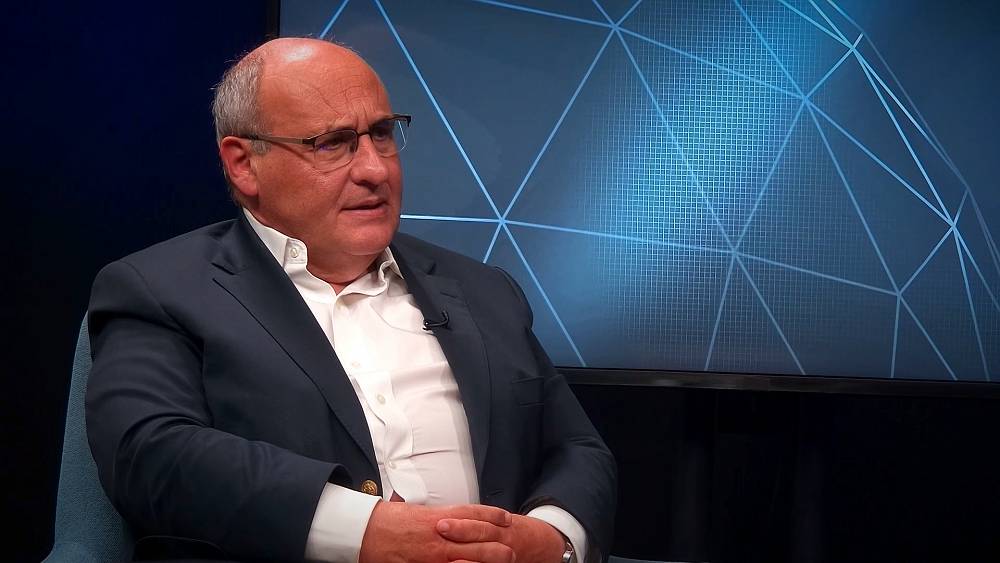
The continued struggle in Ukraine led to five million folks leaving the nation, however that is simply the newest instance of individuals shifting around the globe in unprecedented numbers.
There are a a lot of causes that may lead on to mass-migration, and they’re mentioned at-length in this version of World Dialog, as Euronews Journalist, Nuno Prudêncio, speaks to António Vitorino, Director Normal of the Worldwide Group for Migration (IOM).
Nuno Prudêncio, Euronews: Struggle, terrorism, poverty, local weather change. There might be many causes behind a migration circulation. We’re on the Estoril Conferences, close to Lisbon, the place younger individuals are debating a “Way forward for Hope”. Right here with us is António Vitorino, Director Normal of the Worldwide Group for Migration (IOM). Welcome to Euronews. My very first query is: we’re surrounded right here by younger folks. There is a struggle occurring very close to us, in Ukraine. How can we put together youthful generations to face and reply to the assorted migrations that hold taking place?
**António Vitorino:**The overwhelming majority of migrants worldwide are younger folks, and the primary process, I’d say, for younger folks within the nations of vacation spot is to get in contact with these younger migrants. Get to know them, perceive why they got here. What are their hopes and their expectations? So my attraction right here at present within the Estoril Conferences is to say get engaged, get in contact, perceive why individuals are fleeing from struggle, from poverty, from local weather change. After which act and act means volunteering, the help, but additionally advocating a remedy with dignity to migrants.
Euronews: How is your group dealing with the potential of a long run struggle?
António Vitorino: This refugee disaster is completely distinctive. To start with, as a result of it has grown enormously in a really brief time frame. And sadly, I’m afraid this disaster goes to be lasting. So we have to deal with the instant wants of these folks, each refugees within the European nations and those that have misplaced every part however however stayed inside Ukraine, which suggests shelter, which suggests water, electrical energy, meals, money help. And final however not least, put together for the winter as a result of the winter is across the nook. However on the identical time, if folks wish to survive, they must be resilient. And we have to begin creating hope for the longer term, significantly relating to the necessity of reconstructing a rustic that has been largely devastated by the struggle.
Euronews: Poland and Hungary have been united in a bloc of nations that refused to observe Brussels coverage on asylum seekers. That appears to have modified after the Russian invasion. Do you suppose that this battle, the Ukrainian battle, might trigger a change of views in Central Europe?
António Vitorino: I hope that the generosity that the civil society has proven can even contaminate governments. Actually, as we have now heard at present throughout these conferences, the primary respondents have been the folks, have been the residents who supported the Ukrainians that have been fleeing. Official companies solely got here after the primary constructive impression. And I sincerely hope that there’s nonetheless a reserve of human sort in each nation, in each individual.
**Euronews:**This struggle and the meals disaster might worsen the humanitarian circumstances in lots of African nations, which can result in an upsurge in migration. What are your foremost considerations about this?
António Vitorino: I feel that there’s a shut hyperlink between meals insecurity, local weather change and compelled mobility. And we have to sort out all these parts without delay instantly. Meals insecurity isn’t just due to the rise of the worth of the cereals, due to the struggle. That is a part of the story. However there may be one other a part of the story which is the horrible impression that local weather change, excessive climate occasions, drought, extended drought or generally floods, intensive floods have on agricultural manufacturing. And the built-in strategy requires a mobilisation of the worldwide group and a detailed cooperation, as we do in IOM with the World Meals Programme and with the FAO to sort out the problem. That’s not a brief time period problem. It is a long run problem, to include adaptation and mitigation of local weather change within the every day lives of the communities.
Euronews: Exactly, local weather change… Sooner or later, there are tens of millions of individuals that may be displaced, who might be pressured to go away their properties due exactly to local weather change. How can we put together populations to face this type of exodus?
**António Vitorino:**If you happen to look to the Pacific Islands or to the Caribbean, you will notice that it’s the rise of the water, of the the extent of the water of the ocean that’s damaging the livelihoods in these areas. However when you look, for example, to a rustic like Sudan, the place IOM could be very a lot current, we’re coping with hundreds, tens of hundreds of displaced individuals due to drought. However in the identical nation, however in one other area, we’re coping with tens of hundreds of displaced folks due to the floods. So it’s good to have a tailor made strategy to the realities on the bottom. Migration is likely to be a part of the answer for the impacts of local weather change, however what we want is to prioritise that individuals wish to keep the place they dwell and create the group resilience circumstances to remain and to adapt to the impacts of local weather change.
Euronews: The Taliban regime has just lately celebrated one 12 months in energy in Afghanistan. The United Nations says this nation is experiencing one of many worst humanitarian crises on the earth. How has that impacted your work?
António Vitorino: Enormously, as you may think about. However let’s be very frank. The state of affairs in Afghanistan was already a really severe humanitarian state of affairs, even earlier than the Taliban took over in 15 of August 2021. So the structural issues in Afghanistan have multifolded. You have got the drought, you may have the instability and the insecurity, however you even have a really troublesome well being state of affairs within the nation. And as a result of political dimension of this, the state of affairs in Afghanistan, the worldwide group, the UN companies, amongst which IOM, we ship humanitarian help. However there are limits for what humanitarian help can do. A number of issues can solely be addressed in the long run on the idea of a growth technique. And attributable to political constraints, these days the funding for growth actions is restricted due to the sanctions, and so we are inclined to focus, above all, on humanitarian help.
Euronews: António Vitorino, thanks very a lot for becoming a member of us on The World Dialog.
Thanks to Fidelidade Studio/Nova SBE.



